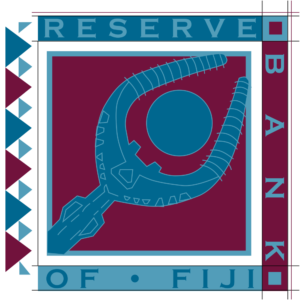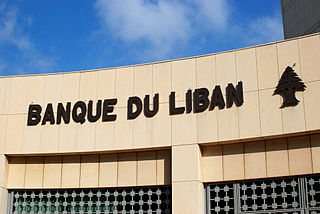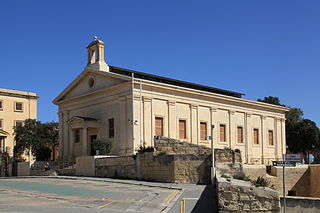
A security is a tradable financial asset. The term commonly refers to any form of financial instrument, but its legal definition varies by jurisdiction. In some countries and languages people commonly use the term "security" to refer to any form of financial instrument, even though the underlying legal and regulatory regime may not have such a broad definition. In some jurisdictions the term specifically excludes financial instruments other than equities and fixed income instruments. In some jurisdictions it includes some instruments that are close to equities and fixed income, e.g., equity warrants.

Banking regulation and supervision refers to a form of financial regulation which subjects banks to certain requirements, restrictions and guidelines, enforced by a financial regulatory authority generally referred to as banking supervisor, with semantic variations across jurisdictions. By and large, banking regulation and supervision aims at ensuring that banks are safe and sound and at fostering market transparency between banks and the individuals and corporations with whom they conduct business.
In general, compliance means conforming to a rule, such as a specification, policy, standard or law. Compliance has traditionally been explained by reference to the deterrence theory, according to which punishing a behavior will decrease the violations both by the wrongdoer and by others. This view has been supported by economic theory, which has framed punishment in terms of costs and has explained compliance in terms of a cost-benefit equilibrium. However, psychological research on motivation provides an alternative view: granting rewards or imposing fines for a certain behavior is a form of extrinsic motivation that weakens intrinsic motivation and ultimately undermines compliance.

The Nairobi Securities Exchange (NSE) was established in 1954 as the Nairobi Stock Exchange, based in Nairobi the capital of Kenya. It was a voluntary association of stockbrokers in the European community registered under the Societies Act in British Kenya. The exchange had 66 listed companies in February 2021.

The Qatar Central Bank is the central bank of Qatar.

The Reserve Bank of Fiji is the central bank of the Pacific island country of Fiji. Its responsibilities include the issue of currency, control of the money supply, currency exchange, monetary stability, promotion of sound finances, and fostering economic development.

Banque du Liban is the central bank of Lebanon. It was established on August 1, 1963, and became fully operational on April 1, 1964. In 2023, Wassim Mansouri stepped up as interim governor of the Banque du Liban after Lebanon failed to name a successor to Riad Salameh, whose term finished in July 2023.
The following outline is provided as an overview of and topical guide to finance:

Edward Haggai Ntalami (19 March 1947 – 20 November 2014) was a business executive and the former CEO of the Capital Markets Authority (CMA) of Kenya. Ntalami was involved in Kenya's capital markets. He served for over two decades in financial planning and management in the fields of commerce and industry, public sector. Prior to his appointment at the CMA, Ntalami was the executive director of Sterling Securities Limited, a local stockbroker. He was appointed Chief Executive, Capital Markets Authority in December 2002 by President Mwai Kibaki. He completed his term in office on 17 December 2007. Seven months after he left Stella Kilonzo became head of CMA.
The Capital Market Authority is the Saudi governments financial regulatory authority responsible for capital markets in Saudi Arabia. The CMA is a government organization applying full financial, legal, and administrative independence, and has direct links with the Prime Minister. Its responsibilities include setting and policing financial rules and regulations and developing the capital markets, this includes regulating the Tadawul, Saudi Arabia's stock exchange. CMA is the first government authority to receive accreditation in institutional structure maturity from the National Enterprises Architecture (NEA) of the e-Government Program Yesser.
The Capital Markets Authority of Uganda (CMA) is a semi-autonomous government body responsible for the financial regulation of the capital markets industry in Uganda.

The Malta Stock Exchange, originally known as the Casino della Borsa, is the stock exchange of the island nation of Malta. Since being set up in 1992, the Exchange has been key to the raising of capital for the private sector through the issue of corporate bonds and equity while virtually all the national debt of Government of Malta has been issued in the form of Malta Government bonds and treasury bills that are listed and traded on the secondary market.

In September 2008, the Federal Housing Finance Agency (FHFA) announced that it would take over the Federal National Mortgage Association and the Federal Home Loan Mortgage Corporation. Both government-sponsored enterprises, which finance home mortgages in the United States by issuing bonds, had become illiquid as the market for those bonds collapsed in the subprime mortgage crisis. The FHFA established conservatorships in which each enterprise's management works under the FHFA's direction to reduce losses and to develop a new operating structure that will allow a return to self-management.
Regulatory responses to the subprime crisis addresses various actions taken by governments around the world to address the effects of the subprime mortgage crisis.
The Emergency Economic Stabilization Act of 2008, also known as the "bank bailout of 2008" or the "Wall Street bailout", was a United States federal law enacted during the Great Recession, which created federal programs to "bail out" failing financial institutions and banks. The bill was proposed by Treasury Secretary Henry Paulson, passed by the 110th United States Congress, and was signed into law by President George W. Bush. It became law as part of Public Law 110-343 on October 3, 2008. It created the $700 billion Troubled Asset Relief Program (TARP), which utilized congressionally appropriated taxpayer funds to purchase toxic assets from failing banks. The funds were mostly redirected to inject capital into banks and other financial institutions while the Treasury continued to examine the usefulness of targeted asset purchases.
The Committee on Capital Markets Regulation is an independent and nonpartisan 501(c)(3) research organization financed by contributions from individuals, foundations, and corporations.
The Communications Authority of Kenya (CA) is the regulatory agency for the ICT industry in Kenya with responsibilities in telecommunications, e-commerce, broadcasting and postal/courier services. The CA is also responsible for managing the country's numbering and frequency spectrum resources, administering the Universal Service Fund (USF) as well as safeguarding the interests of users of ICT services.

The National Securities Market Commission is the Spanish government agency responsible for the financial regulation of the securities markets in Spain. It is an independent agency that falls under the Ministry of Economy.
Stella Kilonzo is a Kenyan accountant and business administrator. She is the immediate past Chief Executive Officer of the Capital Markets Authority (Kenya). She was appointed to that position in July 2008, and she voluntarily stepped down at the end of her renewable four-year term in June 2012. She currently serves as manager of the financial sector development division, at the African Development Bank. She was appointed to that position in December 2013.










